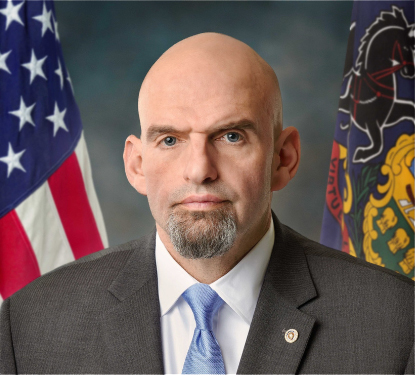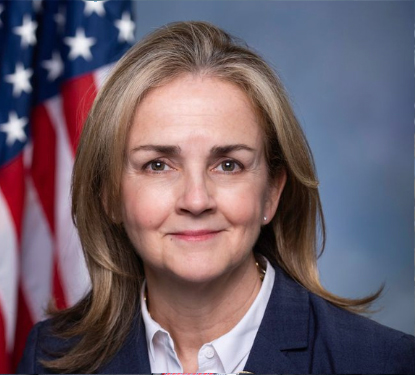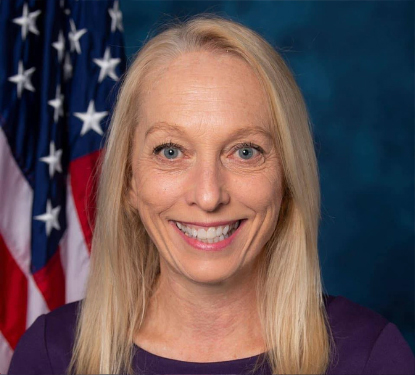Navigating the Federal Shutdown
Due to the ongoing federal government shutdown, essential social services like the Supplemental Nutrition Assistance Program (SNAP), the Low-Income Home Energy Assistance Program (LIHEAP), and more have been halted. This means hundreds of thousands of Pennsylvanians are not getting their basic needs met.
To help you navigate these challenges, Senator Cappelletti’s office is here to provide support. Please take a look through the resources below if you are impacted by the federal government shutdown, and reach out to Senator Cappelletti’s office with any additional questions:
- Norristown District Office: 610-768-4200
- Wynnewood District Office: 610-896-2832
Please note that Senator Cappelletti’s office is a state-level office. To find additional information about the federal government shutdown and how it’s impacting Pennsylvanians, learn more here.
If you would like to voice your concerns about the current state of our nation, we strongly encourage you to contact your federal representatives. Here are the representatives in District 17:
Federal Contacts
Sen. John Fetterman
Philadelphia Office: (215) 241-1090
2000 Chestnut Street, Philadelphia, PA 19106
DC Office: (202) 224-4254
142 Russell SOB, Washington, DC 20515

SEN. DAVE McCORMICK
Philadelphia Office: (215) 405-9660
2000 Market Street, Philadelphia, PA 19103
DC Office: (202) 224-6324
SD-B40C Dirksen SOB, Washington, DC 20515

Rep. Madeleine Dean
Glenside Office: (215) 884-4300
115 E. Glenside Rd, Glenside, PA 19038
DC Office: (202) 225-4731
150 Cannon HOB, Washington, DC 20515

REP. MARY GAY SCANLON
Chester Office: (610) 626-2020
2501 Seaport Drive, BH230 Chester, PA 19013
DC Office: (202) 225-2011
1214 Longworth HOB, Washington, DC 20515

Supplemental Nutrition Assistance Program Information & Tools
Because of the ongoing federal government shutdown, the Pennsylvania Department of Human Services announced that they will not be able to distribute Supplemental Nutrition Assistance Program (SNAP) benefits. This pause means that November benefits will not be paid, and anyone determined to be eligible on or after October 16 will not receive their pro-rated October benefits, which would normally be included with their November payment.
- Two million hungry Pennsylvanians – almost one in every six people gets some kind of SNAP benefit – will now go without food aid.
- More than half of SNAP recipients are families with children who will not get food aid.
- One in four households receiving SNAP benefits – and losing them in November – are households with working adults who are paid wages so low they qualify for food aid.
- To keep or become eligible for SNAP benefits certain people will have to meet new SNAP work requirements that include working, volunteering, or participating in an education or training program for at least 20 hours a week (or 80 hours each month) AND report that they are meeting these work requirements.
- The expanded work requirements will apply to you if you:
- Are between 18-64 years old;
- Do not have a dependent child under 14 years old; and
- Are considered physically and mentally able to work. Being a veteran or a current or former foster youth age 18-24 will no longer be an exemption.
- Some people may still be exempt from these requirements if they meet a different exemption. - If SNAP recipients are not meeting this requirement, they will be limited to three months of SNAP benefits for a three-year period.
- Learn more about SNAP work requirements here.
Where To Find Food & Other Assistance
If your SNAP benefits are at risk, please review these reminders and tools to find support:
- Beware of SNAP scams. Check out these tips from the PA Department of Human Services to protect your privacy.
- Despite the SNAP freeze, the PA Department of Human Services advises that recipients continue to renew their semi-annual renewals from DHS, report changes, and provide info to update their cases for the new federal work reporting requirements.
- Resources to find food banks near you:
- Our local food banks and pantries are doing the best they can with what they have to fill in the gaps for our neighbors in need. If you are able to give, however you can contribute donations or support will help them continue their vital work.
- Contact your federal representatives and urge them to bring an end to this government shutdown.
- Spread the word about where folks can find aid, search for local mutual aid opportunities in places like Facebook groups or community bulletin boards, and practice kindness.
- PA Navigate
- PA Department of Human Services Helpline: 1-800-692-7462 (1-800-451-5886 for those with hearing impairments)
- Montgomery County Assistance Office:
- Toll-Free: 1-877-398-5571
- Phone: 610-270-3500 - Delaware County Assistance Office:
- 610-447-5500
Low-Income Home Energy Assistance Program Information & Tools
Because of the ongoing federal government shutdown, the Pennsylvania Department of Human Services announced that they must delay the opening of the Low-Income Home Energy Assistance Program (LIHEAP) by one month (until December 3, 2025).
Please note that the PA Department of Human Services will continue to process already-received preseason applications for LIHEAP and other benefits during the government shutdown. But in both cases, payments are on hold until federal funding is released to Pennsylvania. Pennsylvania’s annual winter utility shutoff moratorium also runs from December 1 through March 31. While this moratorium will prevent utility shutoffs during the coldest months of the year, it does not cancel a customer’s outstanding home heating bills, so LIHEAP funding is still necessary for individuals who need home heating assistance.
- The LIHEAP Program helps more than 300,000 Pennsylvania families.
- If you are impacted by the changes to LIHEAP, you can contact your specific utility company to inquire about their assistance programs. These are available to qualifying customers in addition to LIHEAP. More information can be found here.
- Find statewide heating assistance programs from PA 211 here (or call 2-1-1)
- Contact your federal representatives and urge them to bring an end to this government shutdown.
- Spread the word about where folks can find aid, search for local mutual aid opportunities in places like Facebook groups or community bulletin boards, and practice kindness.
- PA Navigate
- PA Department of Human Services Helpline: 1-800-692-7462 (1-800-451-5886 for those with hearing impairments)
- Montgomery County LIHEAP: 610-272-1752
- Delaware County LIHEAP: 610-447-3099
Pennie Insurance Information & Tools
Unless Congress acts, enhanced premium tax credits will end on December 31, 2025. This means monthly premiums will dramatically increase (on average by 102% across Pennsylvania) starting January 2026 for most Pennie enrollees.
- According to Pennie, 80% of Pennsylvania’s uninsured are concerned about medical debt or financial crisis resulting from illness or injury, and 60% of already find Pennie plans unaffordable.
- Those impacted by premium increases include 35,499 enrollees in Montgomery County, and 21,781 enrollees in Delaware County.
- In Montgomery County, premiums will increase by 63%, and in Delaware County by 70%.
- Pennie enrollees should continue to update their information and shop for plans during the 2026 Open Enrollment Period. Open Enrollment begins on November 1, 2025. Please continue to read all communications from Pennie and your insurance company.
- Pennie is here as a tool for anyone looking to find plans that fit within their needs and budgets. Connect with a Pennie staff member at Pennie.com/connect.
- Contact your federal representatives and urge them to fight to continue the enhanced premium tax credits.
- Share your story.
